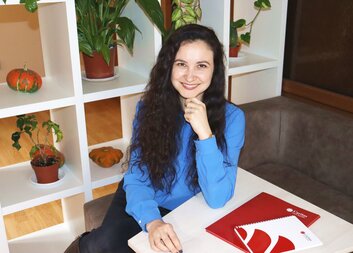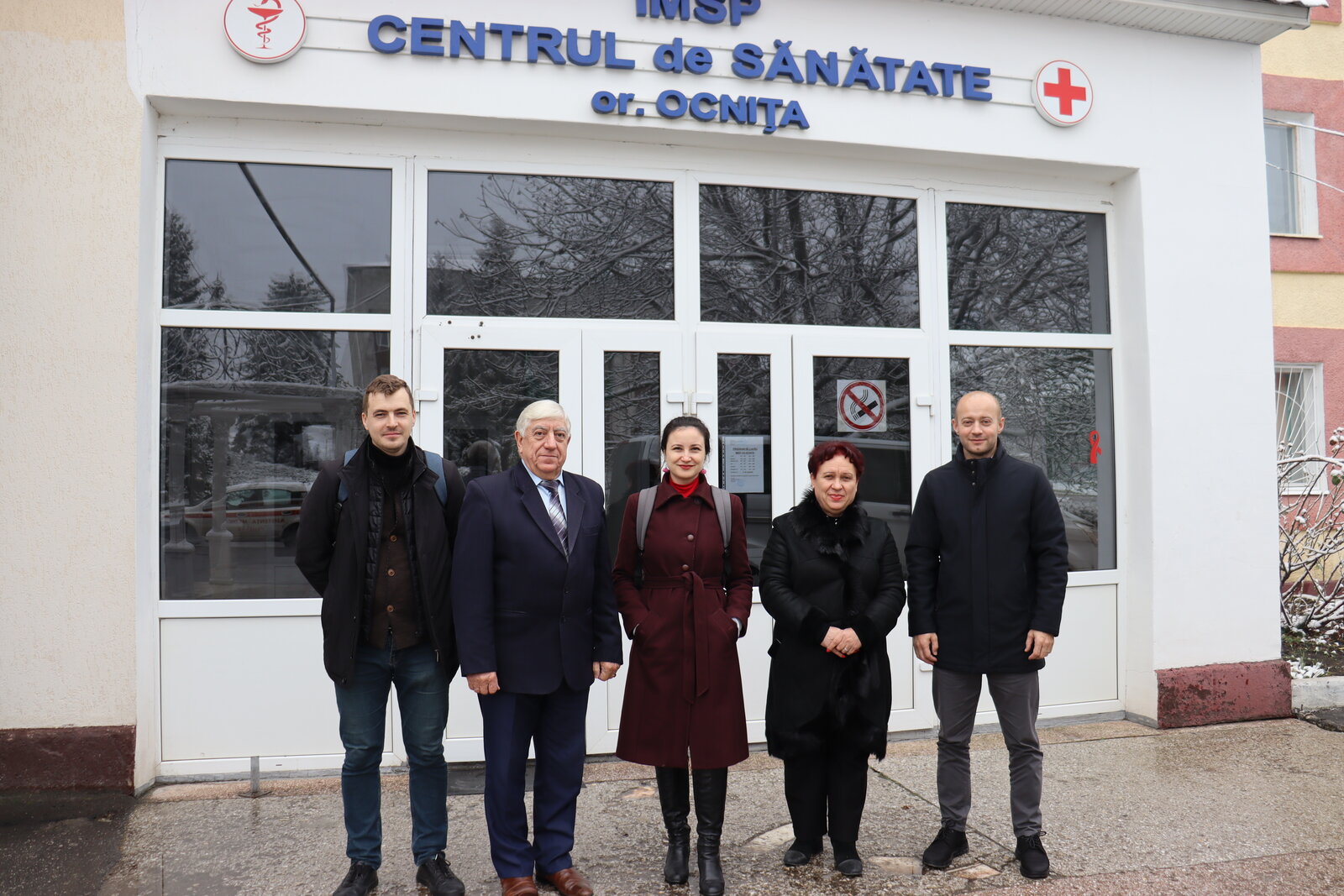Nine months ago, our activities in Moldova were primarily focused on development. However, with the start of the war in Ukraine, Moldova has become a second home for more than 95,000 refugees, and aid organisations had to adapt quickly to the situation. We spoke with Cristina Rogojina, project manager at Caritas Czech Republic, about the organisation’s shift towards humanitarian aid and her own motivation to help Ukrainians fleeing the war.
How exactly does Caritas Czech Republic support Ukrainian refugees in Moldova?
Since the beginning of the war, we have been supporting refugees in placement centres and in the households across the country. Essentially, we are trying to fulfil the basic and immediate needs of people displaced from their homes by the war. We equipped the centres with necessary equipment, and we provide cash support to the refugees.
Thanks to our EU-funded project, Ukrainian refugees receive financial aid worth 2,200 lei (around 112 EUR) for basic needs, plus another 700 lei (35 EUR) per family for cold-season bills. We also offer psychological support to refugees which is very much needed in order to heal the invisible wounds of war. At the same time, we constantly distribute hygiene packs, provide medicine kits to medical institutions serving refugees, organizing activities aimed on social cohesion and refugee-host interactions and are now developing some support activities to ensure a decent living for the refugees during the cold season.
How many refugees has Caritas Czech Republic already supported in Moldova?
So far we have provided cash assistance to more than 2,600 refugees, we have offered more than 2,700 psychological consultations through our partners and distributed more than 3,000 bags of essential hygiene products.
We aim to help approximately 11,000 refugees by the end of the project in March 2023.
How does a humanitarian aid project differ from a regular one?
Classic projects have pre-planned and fixed activities. Whereas humanitarian aid projects are extremely dynamic, they require a lot of flexibility and constant adjustment of actions. Our project activities are always changing depending on the flow of refugees, the situation in Ukraine, the seasonal needs of the refugees etc. Moreover, humanitarian aid projects are new for our country and for me personally, but I see them as an opportunity to learn new things every day.
What distinguishes the Caritas Czech Republic's project from other humanitarian projects?
First of all, we have tried to simplify the bureaucratic procedures for refugees as much as possible. For example, in the case of cash support, we have chosen to cooperate with the state post office, which has at least one local branch in every town across the country. Refugees who have registered with us for cash aid can thus simply receive the money by going to the local post office with their identity card.
Secondly, we have realised that this is a long-term war, and in addition to basic needs, Ukrainian refugees will need activities aimed at social cohesion and integration. This is why we initiated a unique collaboration with the organisation "M.A.D.E." Theatre. We will carry out educational and cultural activities to interconnect the communities of natives and Ukrainian refugees.
Working with refugees also requires collaboration with local authorities. How is this cooperation going?
Working with local authorities is crucial in this joint humanitarian action. I’m happy to say that the Moldovan authorities show empathy, openness and a willingness to get involved, even if it means extra work for their teams. For example, the Ministry of Health agreed to distribute the medicines for refugees through the Health Centres. Similarly, the local authorities in the districts where we work have welcomed us and offered all the necessary support in helping the refugees accommodated in these places.
What was your personal motivation to manage the humanitarian aid project at Caritas Czech Republic?
I was extremely affected when the war in Ukraine started. It turned my world upside down. I didn't think that in the year 2022, in the "heart of Europe", such terror could still happen. From the first day refugees started arriving in Moldova, I wanted to help...I didn't know how, but I wanted to help everyone. Working for Caritas Czech Republic was the solution I was looking for. By managing the humanitarian project, I feel that I am helping so many more refugees than if I had done it alone.
The war in Ukraine brought major changes to the work of Caritas Czech Republic in Moldova. What lessons can we take from this sudden shift and focus on the humanitarian aid?
Unfortunately, it is only in crisis situations that we remember how important solidarity and human unity are. The war in Ukraine has brought us together and revealed the human values that characterise each of us in general, and Moldova has taught the whole world a lesson in humanity and has become known as a small country with a big heart.
The basic lesson we must take away is not to wait for a crisis to offer a helping hand to our neighbour.










